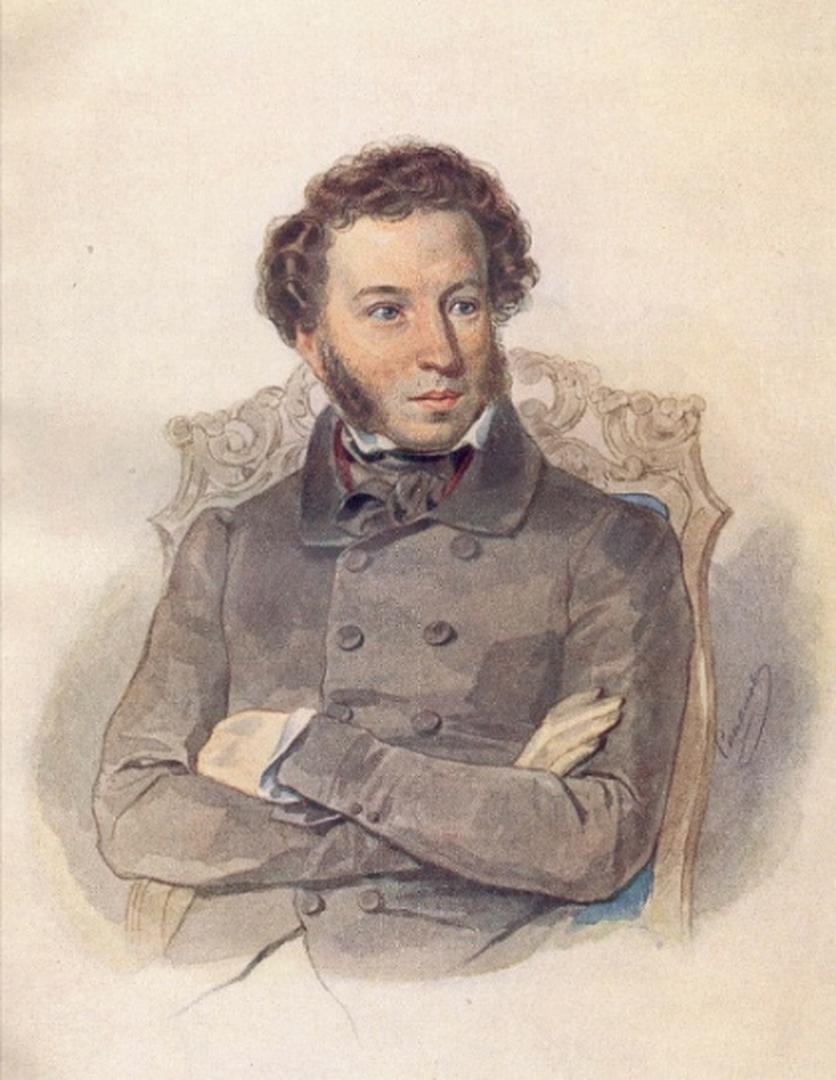
1836 portrait of Pushkin by Pyotr Sokolov / public domain
This evening’s train of thought, triggered by recent events in that part of the world with hot women, ugly men, and nukes, naturally ended with a bottle of vodka. Let me explain.
In 1472, Ivan III, Grand Duke of Muscovy, completed the expansion of what was once a medieval principality into what would become the tsardom of Russia under Ivan the Terrible in 1547.
(Isn’t it fascinating how we can roll out phrases without being aware of the etymology that drives the conversation? Let’s pick that sentence apart, shall we?)
The word “tsar” in itself is derived from the Latin word “Cæsar” dating back to Gaius Julius Cæsar, born 100 BC, died 44 BC.
“Muscovy” dates back to obsolete French “Muscovie” which was derived from Latin “Muscovia” and led to modern Russian “Moskva” which gives us the English “Moscow”.
The abbreviation “BC” itself refers to “Before Christ” used to indicate a time before Christianity. Nowadays, in the name of not wanting to offend people of other religions, academics use “BCE” standing for “Before Common Era”.
Anyway, back to our story.
The tsars prospered (as conquerors usually do) and a generation or so later in 1672 was born Peter I, who became Tsar at the tender age of 10 in 1682.
Peter advanced the technology of his armed forces before embarking on the Great Northern War in 1700. This war lasted 21 years during which time he exapnded his territory into the Baltic. During this time, in 1703, he established a new capital as his seat of power named after him — St Petersburg. By the end of war, Russia was a major European power. That’s where he got the name, “Peter the Great”. He died in 1725.
That was the world Peter left behind into which was born Aleksandr Sergeevich Pushkin, in 1799.
Pushikin was a poet, a novelist, and a playwright which is what makes it so damn difficult to pigeonhole his work. In 1820, when the French Huguenots were pitching up on our shores in South Africa, he wrote a romantic narrative poem, Ruslan and Ludmilla. In 1831, he wrote Boris Godunov, a historical drama. His novel Eugene Onegin was serialised between 1825 and 1833.
Pushkin died in 1837 after he was fatally wounded in a duel with his wife's alleged lover (who happened to be his wife’s sister's husband.)
I could tell you lots more about him. His Wikipedia entry says “He is considered by many to be the greatest Russian poet and the founder of modern Russian literature.” I can’t speak to that because I haven’t read enough Russian literature.
What matters is that I have a bottle of South African vodka in my freezer, “Count Pushkin — The Imperial Vodka”. It’s inexpensive, but distilled five times over which means I’m less likely to go blind from drinking the stuff. I chuckled at the travesty of one of the world’s great writers becoming a marketing ploy for a quick buzz and then smiled because Pushkin gave this quote to the world, and which, for some reason, deeply resonates with me:
"The mob reads confessions and notes, etc, so avidly because in their baseness they rejoice at the humiliations of the high and the weaknesses of the mighty. Upon discovering any kind of vileness they are delighted. 'He's little, like us! He's vile, like us!' You lie, scoundrels: he is little and vile, but differently, not like you."
